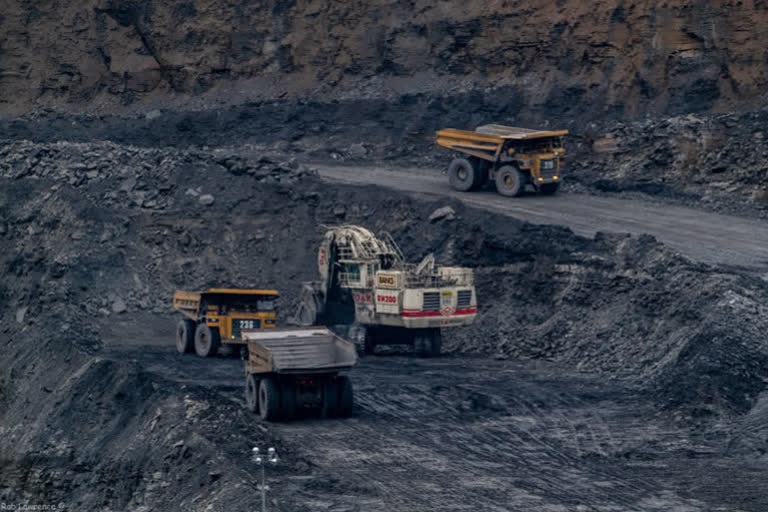New Delhi: Even as the world is riveted on the developments in the ongoing Russia-Ukraine conflict, China is pursuing keen efforts to enter mineral-rich Afghanistan’s extraction sector that is immensely hampered by poor regulation and low technology. At least 25 Chinese mining firms have begun meetings with officials of the ruling Taliban regime in Kabul, Nangarhar, and Laghman provinces for extraction of minerals from the war-ravaged country.
A recent tweet by SIGAR (Special Inspector General for Afghanistan Reconstruction), the US government's leading oversight authority on the Afghanistan reconstruction process, said: "Chinese mining companies have been scouting opportunities to access #Afghanistan’s lithium & copper deposits. Chinese mining industry representatives met with Taliban officials to discuss mining rights and research access to such minerals."
-
(2/2)…Chinese mining companies have been scouting opportunities to access #Afghanistan’s lithium & copper deposits. Chinese mining industry representatives met with Taliban officials to discuss mining rights and research access to such mineralshttps://t.co/LuV5DzXzky
— SIGAR (@SIGARHQ) February 27, 2022 " class="align-text-top noRightClick twitterSection" data="
">(2/2)…Chinese mining companies have been scouting opportunities to access #Afghanistan’s lithium & copper deposits. Chinese mining industry representatives met with Taliban officials to discuss mining rights and research access to such mineralshttps://t.co/LuV5DzXzky
— SIGAR (@SIGARHQ) February 27, 2022(2/2)…Chinese mining companies have been scouting opportunities to access #Afghanistan’s lithium & copper deposits. Chinese mining industry representatives met with Taliban officials to discuss mining rights and research access to such mineralshttps://t.co/LuV5DzXzky
— SIGAR (@SIGARHQ) February 27, 2022
A report in the state-owned mouthpiece 'Global Times' had said that while five Chinese companies have already posted representatives and officials in Afghanistan, more than 20 other Chinese state-owned and private companies have expressed interest in the mining of lithium.
Pulverized by incessant fighting for decades, Afghanistan faces acute fund scarcity to even administer the country. The Taliban is ramping up ways and means to mobilize funds from various sectors including mining. An experienced diplomat, Maulvi Shahabuddin Delawar, has been appointed to spearhead the effort to attract foreign investment in Afghanistan’s mining sector.
Strongly believed to be a repository of rare earth minerals, especially lithium, and others like copper, output and revenues from the mining sector had plummeted after the Taliban took over, says a recent SIGAR report. The sharp decline has been attributed to the Taliban’s "lack of technical expertise, as well as the current financial liquidity crisis" even as mining company leaders assess that mineral exports from Afghanistan declined 45% year-on-year.
Also read: China eyes void in Afghanistan after US withdrawal
Huge reserves of the much-sought-after lithium are present in Afghanistan with some putting the total value at more than $1 trillion, rivalling Bolivia’s reserves. Lithium is indispensable in making batteries of electric vehicles (EV) besides its use in the batteries of laptops and cell phones, as well as in the glass and ceramics industry. The value of lithium can be gauged by the fact that the world is on the verge of an EV revolution.
Notably, while China does not possess significant deposits of the rare earth, it controls most of the world’s lithium-processing facilities producing nearly two-thirds of the world’s lithium-ion batteries. It is often said that China covets its rare earth resources more to achieve its aim of geopolitical dominance and as leverage for use against the West rather than the commercial value.



